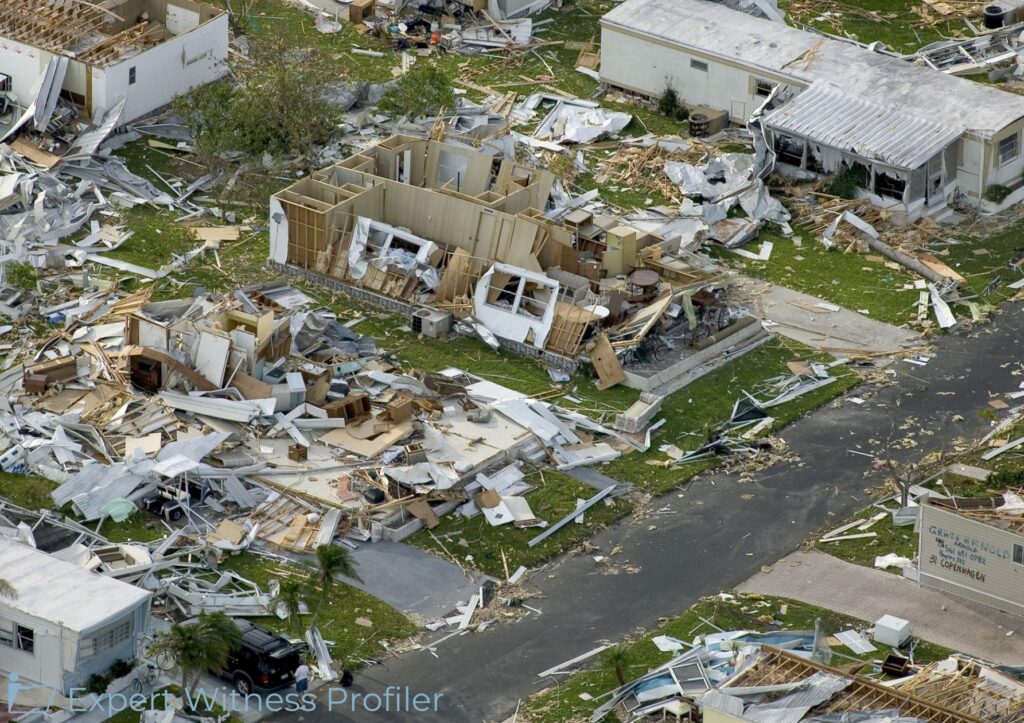Engineering Expert’s Opinion on Cost Estimates Admitted
Posted on April 17, 2025 by Expert Witness Profiler
The Great Lakes Insurance Company issued a policy of insurance (the “Policy”) to Gulf Coast Bank and Trust (“Gulf Coast”) covering specific buildings owned by BRH Consultants, specifically, the Burbank Landing Apartments.
Subsequently, BRH alleged that on August 29, 2021, Hurricane Ida caused damage to Buildings 1 and 2 of the property. Following this event, on September 9, 2021, a claim for damages resulting from the storm was submitted against the Policy.
While Great Lakes paid certain sums under the Policy, the Plaintiff, BRH, claimed that these payments “were totally inadequate to pay the covered damage” to the property. Conversely, Great Lakes alleged that it had paid all sums due and contended that the claimed damages were not caused by Hurricane Ida and, therefore, fell outside the scope of coverage of the Policy.
To substantiate its claim, BRH submitted the expert report of Dr. Jerry Householder, whom BRH described as “an accomplished engineer, construction professional, professor, author, and expert.” Nevertheless, Great Lakes filed a motion to exclude Householder as an expert in this case.

Engineering Expert Witness
Jerry Householder has a PhD in engineering and has been a licensed professional engineer since 1971. As an engineer, he has been the designer of record on over two billion dollars worth of constructed facilities, and as a contractor, he has constructed over one thousand projects.
Householder was the Department Chairman of the Department of Construction Management at LSU, where he held a Distinguished Professorship in the College of Engineering. He has written eight books on construction that have been translated into several foreign languages.
Discussion by the Court
Rule 26(a)(B)(2) Deficiencies
Great Lakes complained that Householder’s 2-page report is “wholly devoid of any analysis linking the facts of this case to his conclusory opinions.”
While the report is short, the Court declared that it is clear from context that Householder used his extensive education and experience along with his review of the photographs and reports mentioned at pages 1 and 2 of his report to reach his conclusion that the cost estimates listed on page two of the report “are reasonable.”
Furthermore, Householder expanded on his report in his extensive deposition and in a subsequent declaration.
To the extent that Great Lakes feels it was surprised by any new information in Householder’s Declaration (which came after his deposition), the Court will allow for a follow up deposition of Householder limited to matters raised for the first time in his Declaration, if there are any.
Methodology
Great Lakes argued that Householder’s “report lacked crucial information concerning what methodology, if any, was used to produce those estimates” and “failed to explain how his expertise allowed him to arrive at his opinions.”
Householder explained in his report that he “inspected the project on more than one occasion and reviewed numerous photographs” and reports which he itemized.
Furthermore, Householder was questioned extensively at his deposition and, in addition, submitted a clarifying declaration. Therefore, the Court believed Householder’s methodology of applying his experience and professional training to the reasonableness of the costs items is a sufficient methodology.
Great Lakes complained that Householder “did not inspect the [p]roperty, nor did he perform an independent analysis of the damage to the [p]roperty”. Instead, he relied on information provided by owner and others and did not “verify” the estimates. But this Court and others have held that physical inspection of the property by the testifying expert is not required in order for an expert to opine on the subject property as long as he was provided with underlying data sufficient to provide a basis for his opinions.
Regarding Great Lakes’ argument that Householder was required to verify the data provided by his client and not rely on its accuracy for purposes of his expert testimony, this Court and others have rejected such an argument.
Sufficiency of Foundation
Great Lakes argued that Householder’s opinions lacked a sufficient foundation because he “relied on insufficient facts and data,” namely, the “limited, inaccurate, undocumented, and/or selfserving, representations of the [p]roperty’s owner . . . .”
However, the Court carefully reviewed Householder’s report and found that there is a sufficient foundation for Householder’s opinions.
But Great Lakes’ attack on sufficiency is really an attack on Householder’s reliance on what it alleges are the “limited, inaccurate, undocumented, and/or self-serving, representations of the [p]roperty’s owner . . . .”
According to the Court, the alleged weaknesses, insufficiencies, inconsistencies, and inaccuracies of Householder’s opinions and the data upon which he relied may be tested by the Defendant on cross examination before the jury.
Held
The Court denied the Defendant Great Lakes Insurance SE’s Daubert motion to exclude the testimony of Dr. Jerry Householder.
Key Takeaways:
- In determining a party’s compliance with Rule 26, the Court may consider the information gathered in the deposition taken after the report which supplements or explains more fully the information conveyed in the report. The Court found that the original report, especially when supplemented and clarified by Householder’s extensive deposition and his declaration, met the criteria of Rule 26(a)(2)(B).
- It is evident that Householder did not merely rely on assumptions but, viewing the photographs and reports of others and relying on his pre-Ida inspections of the property and his extensive experience in construction costs, concluded that the estimates provided were reasonable.
Case Details:
| Case Caption: | Gulf Coast Bank And Trust Company Et Al V. Great Lakes Insurance SE |
| Docket Number: | 3:23cv1444 |
| Court Name: | United States District Court for the Middle District of Louisiana |
| Order Date: | April 16, 2025 |





